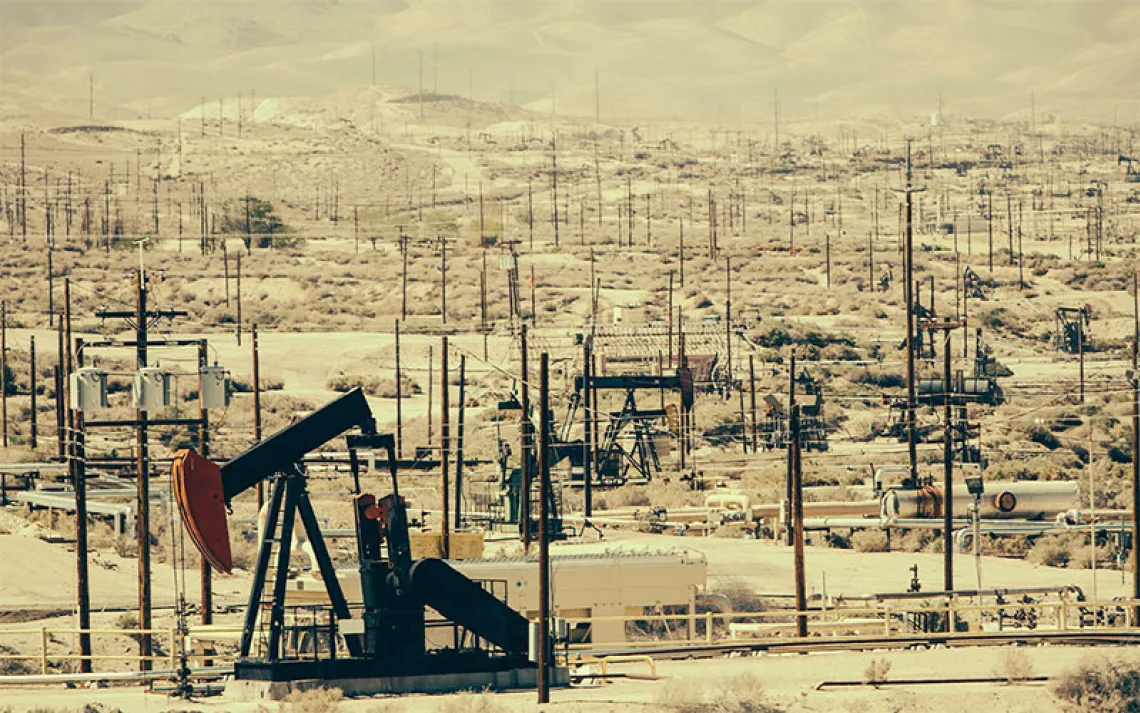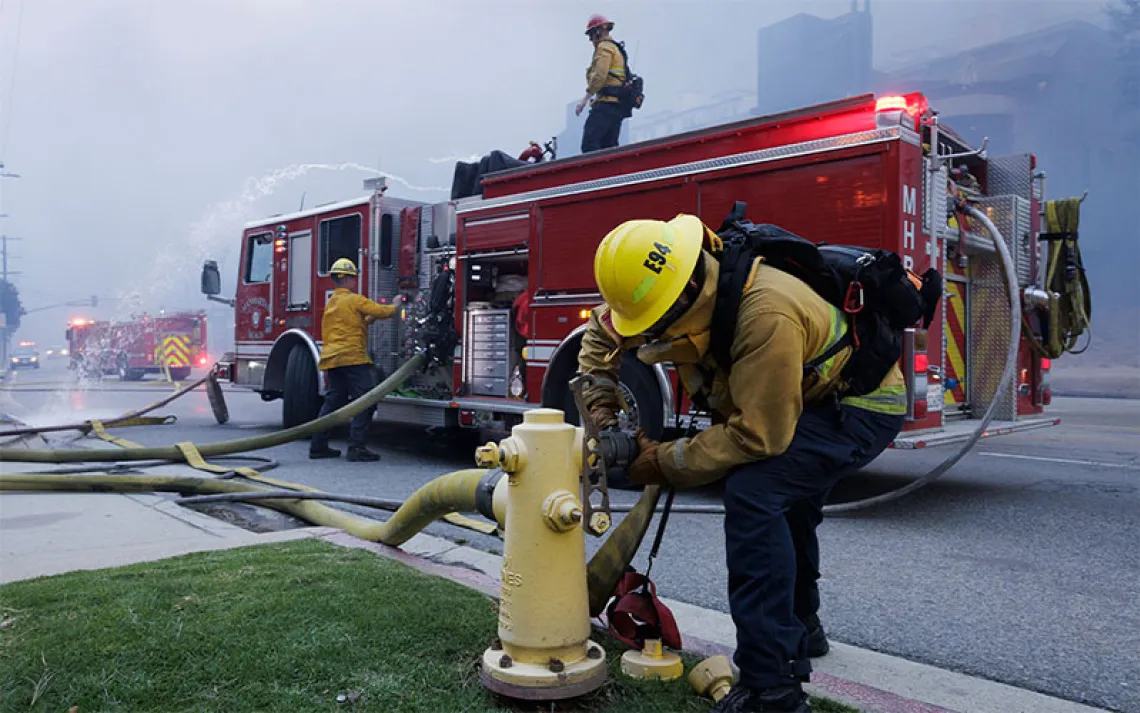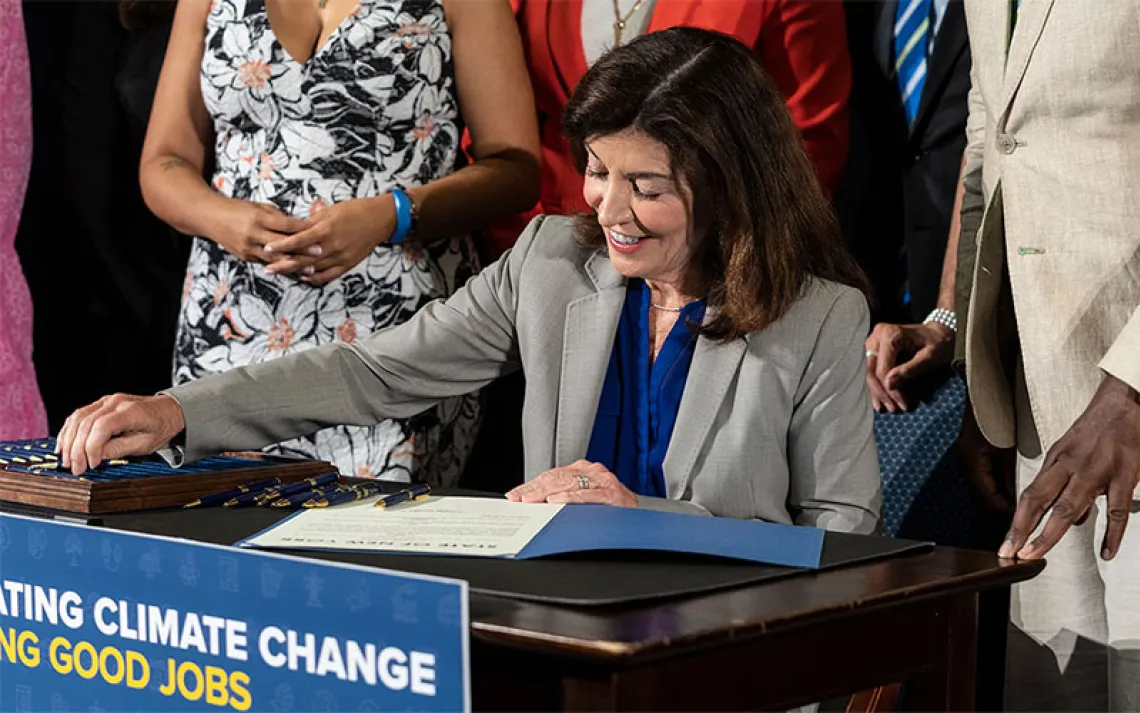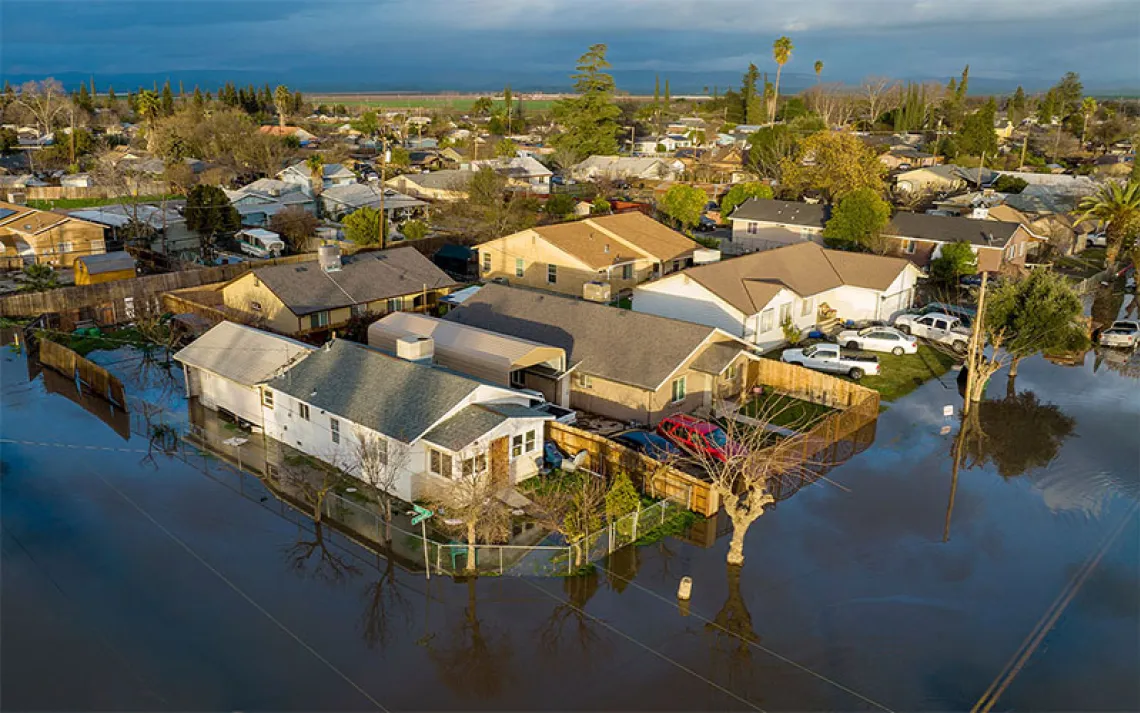Texas Storm Uri Hit People With Disabilities Hard
Their experiences reveal big holes in the state’s disaster planning

Photo by Lea Bouknight/iStock
In the early-morning hours of February 15, 2021, Emily Wolinsky woke up to the sound of beeping, a sign that her ventilator had switched to battery power. “Dan, the power's out,” she called to her partner sleeping next to her. "This could be bad."
Without her ventilator, her lungs wouldn’t be able to suck in enough oxygen when she lay down, resulting in sleepless nights, excruciating headaches, and several other unpleasant symptoms. Wolinsky's partner groggily reassured her that the power would come back by morning, and the couple fell back to sleep.
But to their dismay, the power still hadn't returned when they awoke a few hours later. “I didn't have any idea that [the outage] would go on for so long," Wolinsky recalled a year later. Through her neighborhood group chat, she eventually discovered that most of Austin was affected; the city had been plunged into a seemingly endless blackout.
“We just started taking it basically hour by hour,” Wolinsky said. “It was the nighttime when it got really hard.” Her ventilator battery was still running by that evening, but the humidifier she used to warm the air that flowed through the device relied on electricity. “Because the air in the house was so cold, it was like blowing ice into my nose … I could barely use it. There was no way I could sleep like that.”
Meanwhile, in another part of the city, Kemi Yemi-Ese, who uses a wheelchair, was experiencing what would be the first of seven days without heat and power, during a week when the temperatures remained mostly below freezing. Although this would be considered a high-risk scenario for anyone, “there [was] an added danger because I can't control my body temperature," she said. “Cold temperatures are more severe for a person with a spinal cord injury.”
To make matters worse, one of her pipes burst later that evening, flooding her entire home with three to four inches of water. It took several hours for emergency services to show up and dry out the apartment. In the interim, “the fire department … told me that I just needed to sit tight—that there was nowhere that I could go.”
These two experiences provide a brief snapshot of what millions of disabled Texans went through during Winter Storm Uri, which pummeled the state a year ago this February. A likely symptom of climate change, this storm was unprecedented in both its duration and intensity, catching Texas—and its isolated electrical grid—off guard. Out of all the states that were affected, Texas fared the worst after years of deregulation that had made its gas-dependent grid defenseless to the cold. "In any disaster, you expect some infrastructure to be damaged and services to be interrupted. Unfortunately, nobody knew how bad the grid was,” said Stephanie Duke, an attorney with Disability Rights Texas.

Sign up to receive Sierra News & Views
Get articles like this one sent directly to your inbox weekly.
With this action you affirm you want to receive Sierra Club communications and may vote on policy designated by the Sierra Club Board.
All told, nearly 70 percent of Texans lost power. Many more also lost access to water, transportation, and even medical care—a combination that disproportionately harmed the disability community. “We had people who didn't get their dialysis, and that led to complications,” Duke said. “They eventually, unfortunately, passed away.”
It's impossible to know the true extent to which Uri impacted people with disabilities across Texas. According to a spokesperson from the Department of State Health Services, disability status isn’t something they could easily glean from death certificates of the 246 people who were killed by the storm. But what the storm revealed is that people with disabilities appear to be an afterthought to the local, state, and federal agencies that have a duty to protect them. A more accessible disaster response might have alleviated some of this distress. “We’re never going to be 100 percent prepared for any disaster event,” said Duke, but “to specifically mitigate the needs for the disability community, you have to inclusively plan for that. And that's not happening like it should.”
By midnight, a crew finally arrived to remove the water from Yemi-Ese’s apartment. A few days later, the workers returned to remove “about a foot and a half of [damaged] wall,” she recalled. By then, temperatures were only just starting to rise above freezing, but she had been stuck in her home the whole time.
“I couldn’t leave,” she explained, because despite her disability, her apartment management had refused to move her to a more livable unit. Additionally, “it would be too cumbersome to try to … go to a FEMA hotel,” she said—icy roads aside, hotel rooms are usually not accessible to her. “I wish that there was a system in place for people with disabilities to … remove them from [unsuitable housing], at least temporarily.”
Technically, there is a database that could help. According to its website, the State of Texas Emergency Assistance Registry (STEAR) “provides local emergency planners and emergency responders with additional information on the needs in their community,” including people with disabilities. But Yemi-Ese only learned about the registry after Uri had passed.
“There was some outreach and education about [STEAR] when they pushed it, but that hasn’t been sustained,” Duke said. However, Duke also stressed that the registry doesn’t necessarily mean assistance will arrive in time during a disaster; even the program’s website notes that specific services can’t be guaranteed. In fact, after Hurricane Harvey, some registered individuals said that they waited and waited, but nobody came. “It is not a comprehensive one-stop shop to ensure you're addressing the needs of your community,” Duke said.
Still, at least emergency personnel eventually responded to Yemi-Ese’s situation—an extremely low bar, as it stands. Lydia Nunez found herself scrambling to try and help a disabled friend who “had nothing to eat and had ice water raining in her house.” She tried desperately to find someone who could send her food and turn off her water, but not even the fire department could help in a timely enough manner. Thankfully, she finally got in touch with a friend of someone who worked at the mayor’s office, who ended up assisting as a favor. But to Nunez, who is disabled herself, the situation made it clear: “There’s nothing set up for us.… We’re on our own.”
This can feel particularly true in Texas, where rugged individualism is celebrated as the norm.
On February 17, day two of the storm, the mayor of Colorado City, Texas, wrote in a Facebook post, “The City and County, along with power providers or any other service, owes you NOTHING!!”
Although disheartening, this statement didn’t really take most disabled Texans by surprise. “[There’s] very much the mentality [in Texas] of everybody's independent and on their own,” said Erin Andrews, a triple amputee who lives in Austin. “That mentality always leaves the disability community behind.”
To survive the storm, many disabled people had to rely on the kindness of their family, friends, and neighbors. Andrews said that her situation probably would have been a lot scarier if it were not for the help of her family. Likewise, when one of Wolinsky’s personal care assistants finally managed to reach her, she immediately felt relief, despite spending two nights without a lot of her much-needed medical equipment.
But “that's not really a social safety network,” Andrews said. “We need a more organized government-involved effort to make sure that people don't fall through the cracks.”
Nunez agrees with this sentiment, adding that she would like to see disabled people, specifically, become more involved with disaster planning. “It needs to be disabled people because we know what we need, and, generally speaking, a lot of nondisabled people don't.”
Temperatures plummeted across Texas once again this month, practically marking the anniversary of Winter Storm Uri. And just like Uri, this storm, Landon, formed when the infamous polar vortex stretched into lower latitudes, like a spinning top thrown off-kilter. Some recent studies suggest that this type of phenomenon is caused by accelerated Arctic warming, meaning it will likely become more commonplace because of climate change. This doesn’t necessarily mean it will always lead to the same extreme weather, though. Relative to Uri, Landon was far milder.
However, “the probability of getting an extreme event increases” the more often the polar vortex wobbles, said Judah Cohen, director of seasonal forecasting at Atmospheric and Environmental Research. Because of this, he recommends that governments prepare against all types of extreme weather—not just against hurricanes, heat waves, or droughts.
According to a spokesperson from the Electric Reliability Council of Texas (ERCOT), “a number of reforms from Governor Abbott, the Texas legislature, and the Public Utility Commission have been implemented,” including a bill requiring power plants and transmission lines to weatherize. “The grid is better prepared for future needs than at any point in the past,” the spokesperson wrote via email.
But that’s not as comforting to disabled Texans as ERCOT might hope, especially since Texas has a history of not learning from past mistakes. “All we got from them [this year] is, ‘Oh, the power grid’s not going to fail this time.’ OK, we hope not, but that wasn’t reassuring to me at all,” Andrews said.
Duke also argued that these measures don’t necessarily address the needs of the most vulnerable. For instance, “how do you ensure continuity of services when there are disruptions?” she asked. “In blue-sky times, they don't want to think about that, but that's when it has to happen.”
In addition, at a more individual level, Nunez stresses that preparing for extreme weather in and of itself is a luxury and that disaster-preparedness programs often fail to consider, that “maybe not all of us can afford to have medical kits and stock up on water or food.” For example, because she’s on Social Security Disability Insurance (SSDI), Nunez still can’t afford a backup battery for the breathing apparatus she depends on at night—the same one she had to go without during last year’s power failure. “It's really scary for me to think about [the events of Winter Storm Uri] happening again,” and the idea of more extreme winter weather leaves her panicked.
“To me, that obviously points to we’re still not prepared,” said Duke. “If people are still this anxious about it, then we haven't done enough to educate, provide for—whatever we need to mitigate that anxiety.”
 The Magazine of The Sierra Club
The Magazine of The Sierra Club



